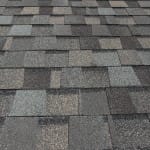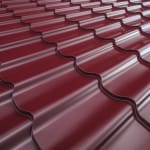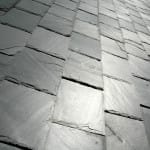The Right Roofing Material for Your Home
Choosing the right roofing material for your new roof can be an intimidating prospect if you are not familiar with the benefits and drawbacks of your options. Consider the material’s cost, lifespan, durability, physical properties, and appearance, among other factors. Determine your budget and priorities before making your decision. Below are a list of types of roofing material to help you find the perfect roof.
Asphalt Shingles

Clay Tiles
A more expensive option versus asphalt, clay tiles offer great resistance to fire, are generally low-maintenance and long-lasting, and are made from natural materials. However, manufacturing is energy-intensive. This type of roofing material is heavier and may require framing for support, but does offer an attractive European-style look.
Concrete Tiles
Very similar properties to clay tiles, although considerably cheaper. Concrete is popular on roofs with steep or moderate sloping, offers excellent fire resistance, and can resemble wood shakes, slate, or clay tiles. This is another heavy material requiring reinforced roof framing for support.
Metal

Slate

Other Considerations
Weigh all factors when deciding on a roofing material. This includes the reputation of the installation company and the type of warranty they provide. Determine the most likely risks in your area, and the benefits you are seeking, whether for safety, appearance, or weather. The roof is a major element of your home from aesthetic and functional standpoints. Make sure to do your homework before you make a decision.
